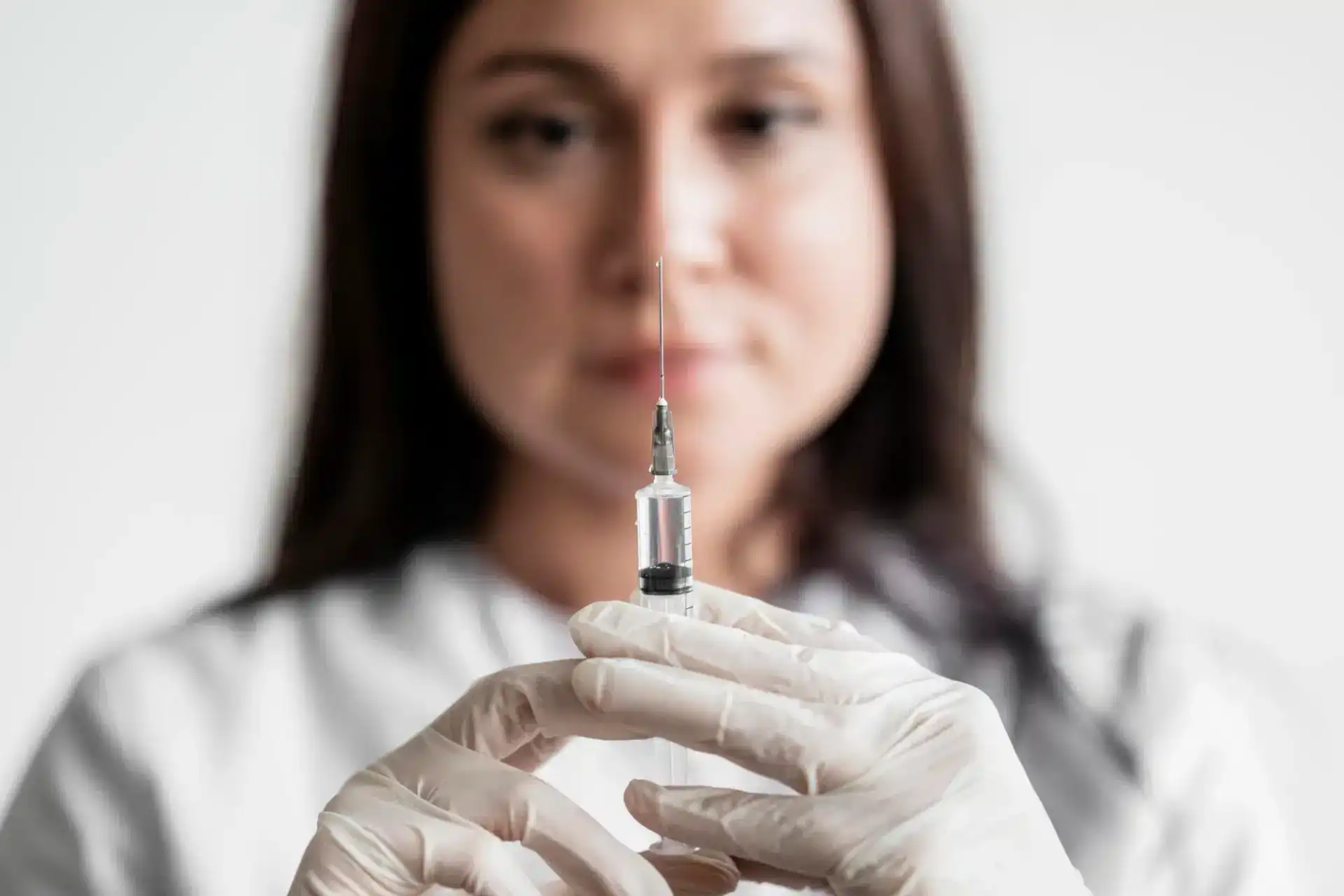
Authentic Fillers: How to Spot the Real Deal from the Fake
David Fuller
Last Updated On: October 15, 2024
In the world of cosmetic enhancements, dermal fillers have become increasingly popular due to their ability to rejuvenate and enhance one’s appearance. However, with their growing demand, the market has also witnessed the rise of counterfeit products that pose serious risks to unsuspecting consumers. That’s why it’s crucial to understand how to recognize authentic fillers from fake ones, and to protect your practice and patients by shopping only with trusted suppliers like Med Supply Solutions.
The Dangers of Counterfeit and Fake Products
While they may look the same at first glance, there is a slight difference between a counterfeit and a fake product. Counterfeits try to pose as legitimate products, while fake products claim to have the same or even better characteristics than some famous brands like Juvederm or Sculptra. Like any type of scam, they can also result in financial loss. However, since we are talking about cosmetic products, the dangers extend beyond monetary ones. The unregulated substances found in these fraudulent products can pose a significant risk to the patient by impacting their well-being and overall health, which in turn can lead to the practitioner losing their license.
The monetary scenario is also common in other industries. You order a product expecting an original brand or better results, but end up getting something entirely different. The ordered product fails to deliver the desired results, forcing you to spend more money to achieve what the original product would have done for less money. It’s not uncommon for counterfeit or fake dermal filler to contain a saline solution, which creates a slight improvement but dissipates in the following days as the body processes it.
Dermal fillers, classified as Class 1 medical devices, undergo rigorous approval processes. Manufacturers must provide substantial scientific evidence during premarket approval to ensure the safety and effectiveness of the device. Counterfeit fillers, unlike their authentic counterparts, are produced by unregulated manufacturers who prioritize profits over consumer well-being. These products often contain substandard or even dangerous substances that can lead to adverse reactions, infections, and severe complications. By bypassing rigorous quality control measures, counterfeit fillers expose individuals to unnecessary risks that can have long-lasting consequences for their physical and emotional well-being.
Under any circumstances, you should never use dermal fillers for large-scale body contouring! Even when using legitimate products, they can cause severe injuries and even death.
4 Ways To Tell If Your Filler Is Fake
Online shopping has revolutionized how we make purchases, offering convenience and accessibility. However, along with these advantages, there is an unfortunate downside: scammers can now reach a wider audience and exploit unsuspecting buyers. This is true for a wide variety of products, including dermal fillers, which counterfeiters are increasingly targeting.
So, how can we be sure of the filler’s authenticity? We have devised four steps that should help you determine if the dermal filler is genuine or fake.
- Sellers Authenticity
It’s difficult to check the authenticity of a product you can’t physically review, so we start by looking at the seller’s website. Be aware that scammers these days are extremely good. It will be challenging to tell fake websites from real ones, as they’ll try replicating the authentic ones to the letter. Therefore, you’ll rarely see websites crashing or leading to 404 pages, and for good reason. You wouldn’t do business on such a website, even if you knew that the company behind it was selling authentic fillers.
You’ll have to look for more subtle signs, like if they have a phone number you can use and shipping info, and then you have to cross-check these details to verify if the website is legitimate or not. If anything is missing, but the seller has contact info, you can try reaching out and asking them to provide you with additional information. In most cases, scammers won’t have a return policy, a means of direct communication, or a way to be contacted. However, it’s important to note that nowadays, multiple services are available that handle call center duties on behalf of businesses.
When contacting the seller, pay attention to their response. Legitimate sellers typically respond promptly and professionally, addressing any concerns or questions you may have. If the seller’s response seems evasive, inconsistent, or unprofessional, it could be a red flag indicating a potential counterfeit dermal filler website.
- Check Reviews
While the internet gives scammers a degree of anonymity, it also offers a voice to everyone who has tried using their services or products. Check the reviews of the company or brand you are purchasing from. For example, reputable sellers like Med Supply Solutions will have a link to their TrustPilot page, giving you the opportunity to check the experience that other customers had with the platform.
- Product Name
Check the official name of the dermal filler product you are purchasing. Counterfeits or fake dermal fillers may have altered the product name slightly, making it similar but not identical to the genuine brand. Verify the correct product name on the manufacturer’s official website. If the product name appears slightly different, it could indicate a fake filler. A good example of this would be Destylane instead of Restylane.
- Package Verification
Lastly, when the product arrives, thoroughly check the packaging and the product. Genuine products have consistent high-quality packaging with clear labeling, holographic stickers, batch numbers, and expiration dates. Counterfeit fillers may have poor printing quality, misspelled words, or inconsistencies in the logo or design. If you are harboring any doubts, verify the batch number and expiration date with the manufacturer to ensure their validity.
Conclusion
As a medical professional, it is crucial to exercise due diligence in the process of sourcing dermal filler supply for your practice. Ensuring well-being and safety for your patients is a top priority, and verifying the authenticity of dermal fillers is an essential step in providing quality care. This is why you should always purchase the filler products you need from a legitimate supplier like Med Supply Solutions.
FAQ
Which fillers are FDA approved?
The following authentic fillers are FDA-approved: Artefill, Restylane-L, Belotero Balance, Cosmoderm, Juvéderm, Prevelle Silk, Fibrel, Elevess, Captique, Hylaform, Zyplast, Sculptra, Zyderm, and Radiesse.
Which fillers are safe?
You can never go wrong with using hyaluronic acid fillers due to their biodegradable and biocompatible composition.
Is there a downside to fillers?
When used correctly by a medical professional, the only potential disadvantage of fillers are side effects, such as bruising and swelling, which can occur at the applied areas but disappear after a few days.
References
- Counterfeit medicines; Centers for Disease Control and Prevention; July 2021
- FDA’s BesafeRx campaign; U.S. Food and Drug Administration; Jan 2021
- The Use of Medicines in the U.S. Spending and Usage Trends and Outlook to 2025; May 2021
- How to Spot Health Fraud; U.S. Food and Drug Administration; Aug 2018
- Serious issues relating to counterfeit dermal fillers available from Internet sources; Andy Pickett (PhD); 2011
Products
Cart
Log In
Newsletter
Subscribe for exclusive offers and updates on new arrivals
Share feedback at:
Working Hours
MON - SUN 9AM to 6PM EST
The Most Popular Brands
Med Supply Solutions
Support
Secure checkout is guaranteed with full adherence to PCI DSS payment standards.
Products listed here are guaranteed authentic and manufacturer-sourced.
Pay easily with trusted providers


Copyright 2025. Med Supply Solutions